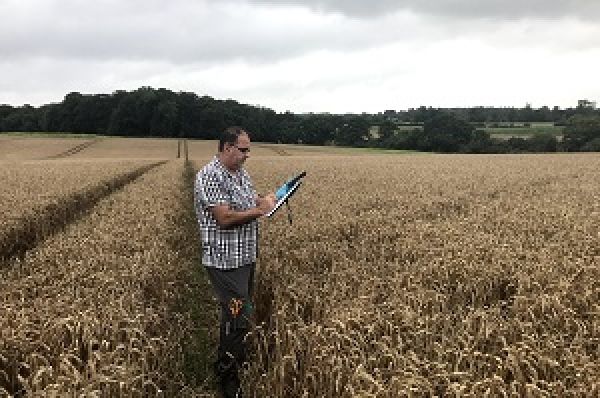Farmers could benefit from their big data to help them reduce the environmental impact of fertilisers while maintaining quality yields and profits of wheat thanks to a new research project developed at the University of Reading.
The EIT Food co-funded LINKDAPA project (LINKing multi-source Data for Adoption of Precision Agriculture) provides arable farmers with a low-cost, simple way to use big data to help highlight areas of their fields that are likely to give higher yields and grain protein content. EIT Food, the world’s largest and most dynamic food innovation community, is supported by the European Institute of Innovation and Technology (EIT), a body of the European Union.
Now in its second year, the partnership sees the University of Reading working with other academic institutions and agriculture firms. The resulting collaboration has meant that researchers are able to spatially predict grain protein and deliver highly detailed grain protein maps of fields during the growing season. These predictions will enable farmers growing bread-making wheat to target nitrogen fertiliser to areas that will best respond to it, saving farmers money and reducing their environmental impact. Predictions are being validated both by manual sampling and using proprietary NIR Protein Sensor hardware from John Deere.
Continue reading at University of Reading
Image via University of Reading


